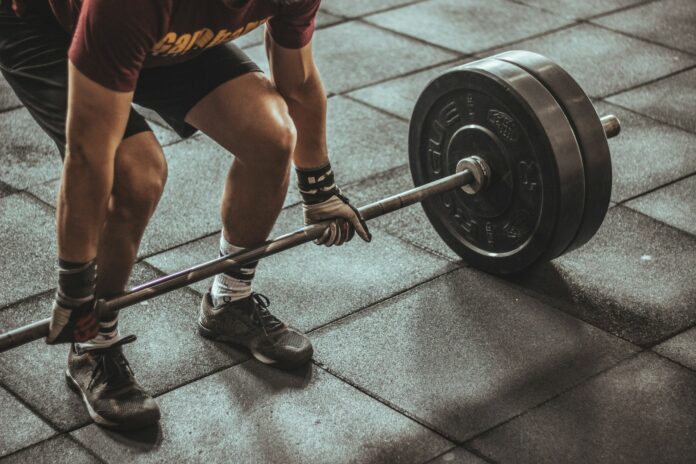Observing Ramadan while maintaining athletic performance presents unique challenges that require strategic nutrition planning. This guide provides evidence-based recommendations to help athletes preserve muscle mass, sustain energy levels, and continue making progress during the fast. By implementing these targeted nutritional strategies, you can honor your religious commitment while supporting your athletic goals.
Breaking Your Fast (Iftar) Immediate Post-Fast (First 15-30 minutes)
- Priority 1: Strategic Hydration
- Begin with an electrolyte-rich hydration solution (like Ultima or Genius) without added sugars
- Alternative: Natural alkalizing drink – 1/4 tsp baking soda, 1 tbsp apple cider vinegar, and fresh lemon juice in 12oz water to balance pH and jumpstart digestion. (you can do both as well if you’ve done it before)
- Aim for 16-20oz immediately, then continue hydrating throughout the evening
- Athletes should add extra electrolytes based on training intensity and sweat rate
- Priority 2: Fast-Absorbing Protein + Moderate Carbs
- Consume 30-50g of high-quality protein within 30 minutes of breaking fast
- Include a small amount of fast-digesting carbohydrates to jumpstart glycogen replenishment
- Example: Greek yogurt (0% fat) + whey protein and berries
Main Meal (After Prayer)
- Plate Composition
- ½ plate: Low glycemic vegetables (leafy greens, broccoli, zucchini, cauliflower)
- ⅓ plate: Complete protein sources (lean meats, fish, eggs, tofu)
- ⅙ plate: Complex carbohydrates (basmati rice, sweet potatoes, quinoa)
- ⅙ plate: Traditional foods (preferably non-fried)
- Add 1-2 tbsp healthy fats (olive oil, avocado, nuts)
- Muscle Preservation Strategies
- Prioritize leucine-rich proteins (chicken, fish, whey, eggs) to stimulate muscle protein synthesis
- Increase protein portions by 20-25% compared to non-fasting periods
- Consume complex carbohydrates with lower glycemic load for sustained energy
Late Evening Nutrition
- Continue hydrating (aim for at least 2-3 liters total between Iftar and sleep)
- Consider a slow-digesting protein source 1-2 hours before sleep
- Incorporate anti-inflammatory foods to support recovery (berries, omega 3s, turmeric, ginger)
Pre-Dawn Meal (Suhoor)
- Hydration First
- Begin with 16-20oz water + electrolytes
- Continue hydrating until the fast begins
- Optimal Meal Composition
- High-quality protein: 30-40g (protein shake, eggs, Greek yogurt)
- Complex carbohydrates with low glycemic index (oats, sweet potatoes, quinoa)
- Healthy fats to slow digestion (nut butters, avocado, olive oil)
- Athletic Performance Options
- Quick option: Whey protein + banana + nut butter + overnight oats
- Complete meal: 3-4 egg whites + 1-2 whole eggs + sweet potato + avocado + spinach
- Sustained energy: Greek yogurt parfait with chia seeds, berries
Training Strategies for Athletes
- Workout Timing
- Optimal: 1-3 hours after Suhoor OR 1 hour before Iftar
- Strength training: Better closer to Iftar when glycogen is depleted but protein synthesis can be stimulated immediately after
- Endurance work: Better after Suhoor when glycogen stores are available
- Training Modifications
- Reduce training volume by 20-30% but maintain intensity
- Focus on quality over quantity
- Consider splitting workouts into shorter, more focused sessions
- Track performance metrics to adjust as needed
- Recovery Emphasis
- Prioritize sleep quality and duration (aim for 7-9 hours)
- Consider contrast therapy (hot/cold) for faster recovery
- Implement active recovery techniques on rest days
Supplement Considerations
- Beneficial During Ramadan
- Electrolytes (sodium, potassium, magnesium) – critical for hydration, take immediately at Iftar and before Suhoor
- Creatine monohydrate (3-5g daily during feeding window)
- Essential Amino Acids (EAAs) with leucine (during feeding window)
- Vitamin D3 (2000-5000 IU daily)
- ZMA (zinc, magnesium, B6) before sleep
Performance Monitoring
- Keep a daily log of:
- Energy levels (scale 1-10)
- Training performance
- Recovery quality
- Hydration status
- Adjust nutrition strategy based on this data
Key Principles to Remember
- Total daily calories should be maintained or only slightly reduced
- Protein intake should be increased to prevent muscle loss
- Hydration is crucial and should be strategically planned
- Training should be adapted, not eliminated
- What you eat when breaking fast has more impact than the hours spent fasting
Remember: Fasting during Ramadan doesn’t mean compromising athletic performance. With strategic nutrition timing and proper food selection, you can maintain muscle mass, support recovery, and even make performance gains during this sacred month.

